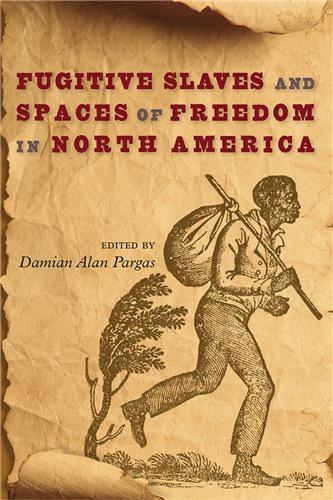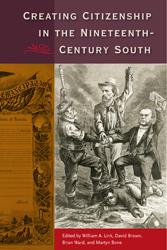Bound Labor in the Turpentine Belt
Kinderlou Camp and Misdemeanor Convict Leasing in Georgia
Thomas Aiello
Hardcover: $110.00
Paper: $35.00
Paper: $35.00
Available for pre-order. This book will be available November, 2024
Uncovering a little-known system of bound labor in the post-Reconstruction South
“Aiello’s microhistory of peonage and convict labor in south Georgia shows how integral bound Black labor was to white supremacy in this corner of the postbellum South. No one else has shown how deeply entangled the illegal system of peonage was with a state-sanctioned carceral regime of forced labor.”—Alex Lichtenstein, coauthor of Marked, Unmarked, Remembered: A Geography of American Memory
"This is a history that changes our understanding of punishment in post-Civil War America. After reading this book, scholars will never see convict leasing and debt peonage the same."—Talitha L. LeFlouria, author of Chained in Silence: Black Women and Convict Labor in the New South
After the constitutional end to slavery in the United States, southern white landowners replaced labor by enslaved people with systems of bound labor in which people worked to pay off debts or legal fines. Through the story of a labor camp in Georgia, Thomas Aiello takes a close look at the Deep South’s dependence on debt peonage and convict leasing systems during the post-Reconstruction era and draws attention to a form of bound labor that has not been discussed by scholars of racialized incarceration.
At the center of this study is the Kinderlou labor camp, which was owned by the prominent white McRee family of Valdosta. In south Georgia and north Florida, debt peonage and felony convict leasing operated separately from an often overlooked third system: misdemeanor convict leasing. This system was largely unregulated by prison officials, leading to abuses of persons with convictions working in the turpentine industry and the kidnapping of many Black residents of the area who had never been charged with crimes. Unlike other work camps, Kinderlou deployed all three systems to bolster its workforce, making it a unique manifestation of the region’s exploitative labor operations.
Through deep archival research, Aiello uncovers injustices that drove local individuals who were imprisoned to work with federal prosecutors to seek relief and publicize the abuses they saw and experienced. The nexus of racism, work, and incarceration seen at Kinderlou is shown here to have been a form of slavery a half century after slavery’s official “end.” It also casts a long shadow on today’s carceral system.
Thomas Aiello is professor of history and Africana studies at Valdosta State University. He is the author of many books, including The Life and Times of Louis Lomax: The Art of Deliberate Disunity.
Publication of this work made possible by a Sustaining the Humanities through the American Rescue Plan grant from the National Endowment for the Humanities.
No Sample Chapter Available
There are currently no reviews available












